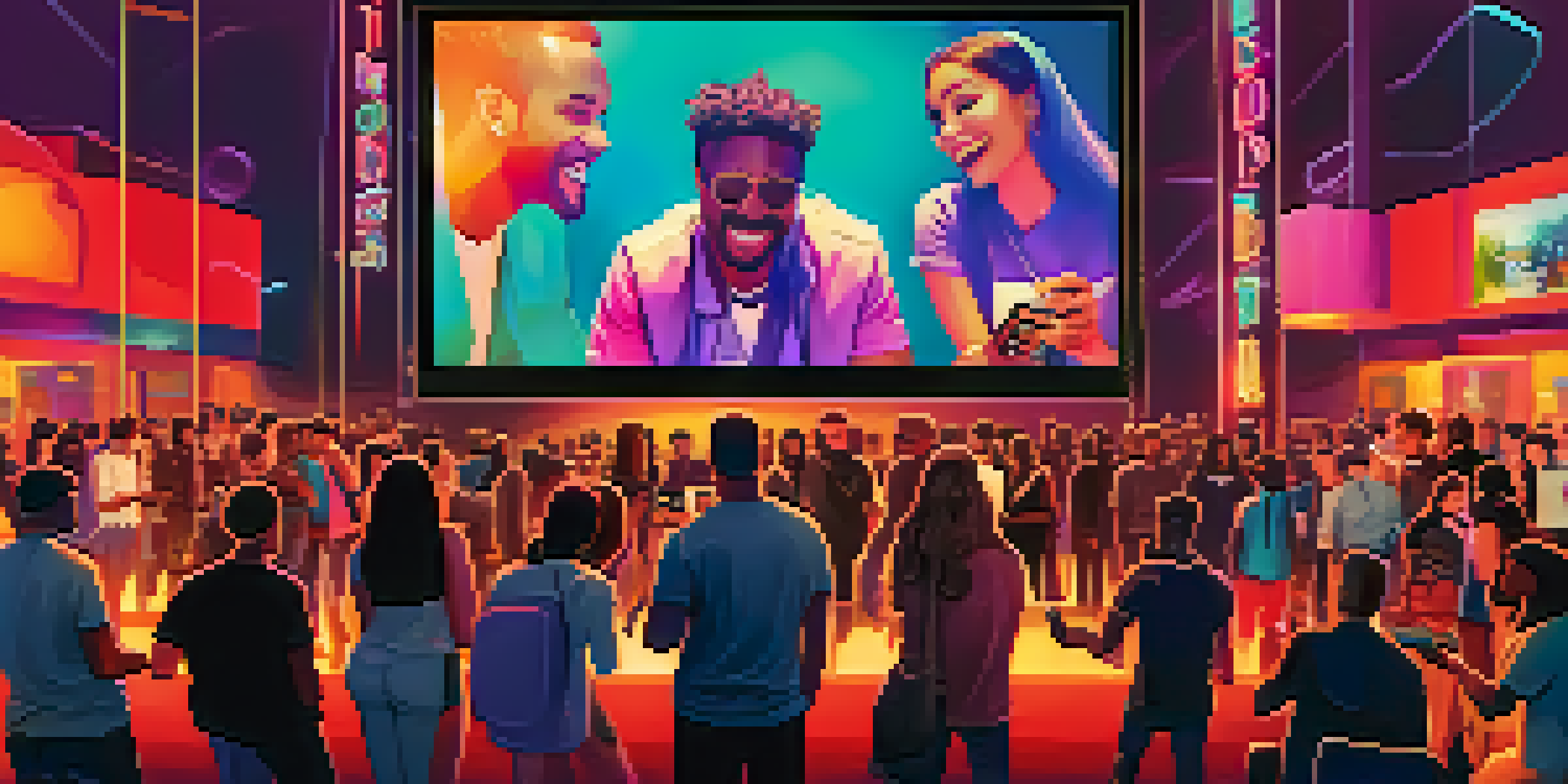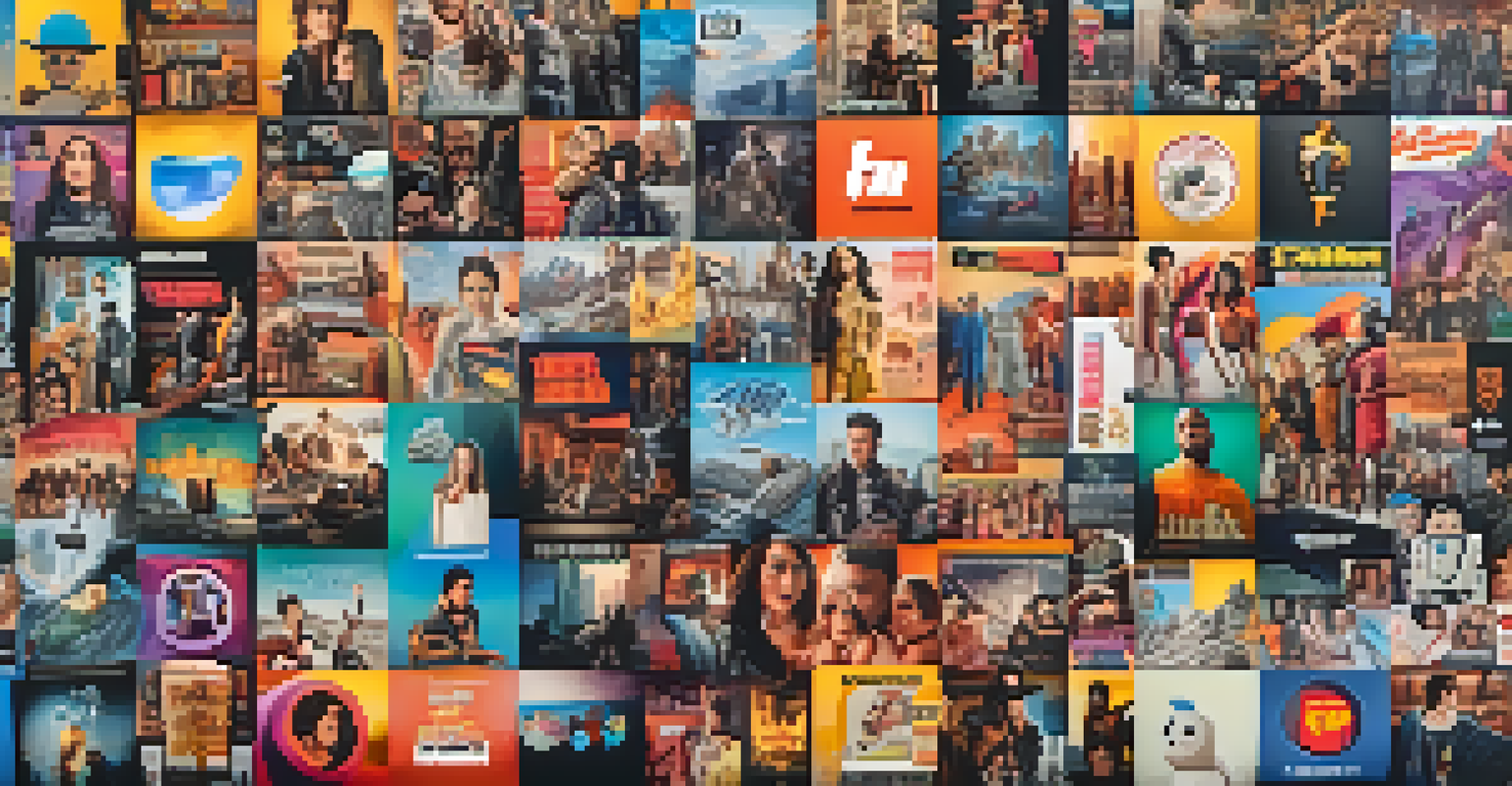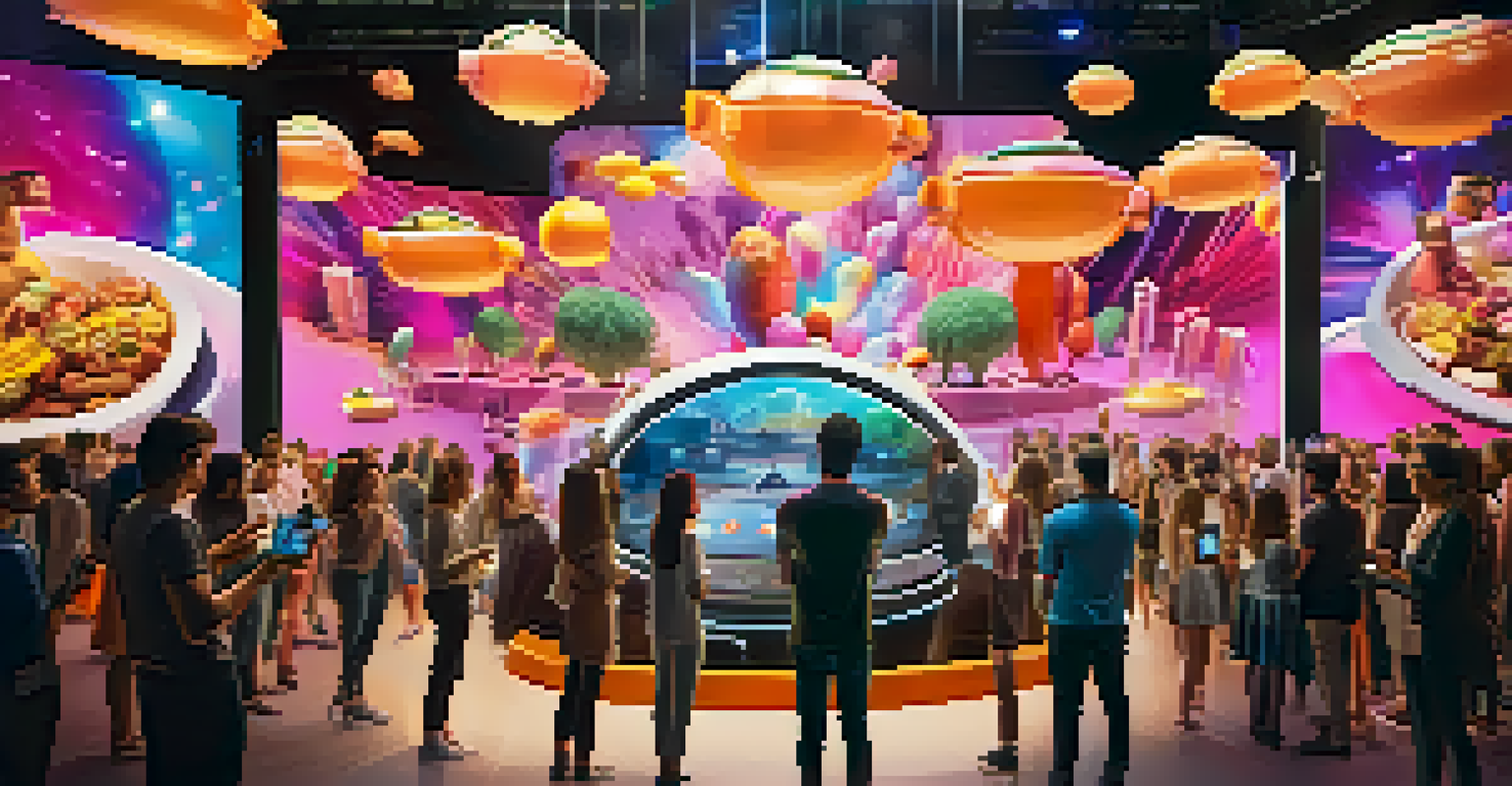The Role of Social Media in Shaping Hollywood's Marketing Trends

The Rise of Social Media in Hollywood Marketing
Social media has dramatically changed the landscape of Hollywood marketing, allowing studios to reach audiences directly. In a world where traditional advertising methods are losing traction, platforms like Twitter, Instagram, and TikTok have emerged as essential tools for engaging fans. This shift not only enhances visibility but also fosters a more personal connection between creators and their audience.
Content is king, but engagement is queen, and the lady rules the house!
Consider how film trailers are now often released on social media platforms first, generating buzz and anticipation that traditional methods can't match. A well-timed tweet or viral post can create a phenomenon overnight, showcasing the power of social media in shaping public perception. As a result, studios are investing more resources into social media campaigns to ensure they capture audience attention from the get-go.
Ultimately, the rise of social media has transformed how films are marketed, encouraging a more interactive and responsive approach. Studios can now gauge audience reactions in real-time, allowing them to adjust strategies on the fly. This adaptability is crucial in an industry that thrives on trends and shifting consumer interests.
Building Anticipation Through Teasers and Challenges
One of the most effective strategies in social media marketing is the use of teasers and challenges to build anticipation for upcoming films. Studios often release short clips or cryptic images that spark curiosity and speculation among fans. This strategy not only generates excitement but also encourages audience interaction as fans discuss and share their theories online.

For example, the 'Ice Bucket Challenge' for a movie’s promotion can engage fans in a fun and charitable way while simultaneously spreading the film's message. Such challenges not only enhance user engagement but also create a sense of community among fans. This collective involvement can lead to a more invested audience when the film finally premieres.
Social Media Transforms Marketing
Social media has revolutionized Hollywood marketing by fostering direct audience engagement and building anticipation through innovative strategies.
Moreover, these teasers and challenges often go viral, reaching audiences far beyond the studios' immediate follower base. As fans share their excitement across their networks, the film gains additional visibility, amplifying the marketing impact through organic social sharing.
Influencer Collaborations: A New Marketing Frontier
Collaborating with influencers has become a cornerstone of social media marketing in Hollywood. Influencers have built loyal followings and can sway public opinion with their recommendations. By partnering with these individuals, studios leverage their reach to promote films in a way that feels authentic and relatable to audiences.
Marketing is no longer about the stuff you make, but about the stories you tell.
For instance, when a popular YouTuber posts a review or a behind-the-scenes look at a film, it resonates more with their audience than traditional ads might. This authenticity is key; audiences are more likely to trust recommendations from someone they follow closely. As a result, influencer collaborations can create significant buzz and drive ticket sales.
Additionally, influencers often engage with their followers in real-time, responding to comments and fostering discussions about the film. This immediate interaction helps maintain the excitement and keeps the film relevant in conversations, extending its marketing lifespan beyond the initial release.
User-Generated Content: Engaging Audiences Creatively
User-generated content (UGC) is another powerful tool that studios are increasingly utilizing in their marketing strategies. By encouraging fans to create and share their own content related to a film, studios can amplify their reach and foster a sense of ownership among viewers. This approach not only engages the audience but also generates authentic buzz that can be more effective than traditional marketing.
For example, a film might launch a hashtag campaign inviting fans to share their favorite moments or artwork inspired by the movie. As fans participate, they contribute to a larger conversation that can attract even more viewers. The creativity and passion displayed by fans can often surpass what studios can produce, offering a fresh perspective that resonates with potential audiences.
Influencers Boost Film Promotions
Collaborating with influencers creates authentic connections, driving buzz and ticket sales more effectively than traditional advertising.
Moreover, UGC serves as a form of social proof, showcasing the film's popularity and encouraging others to join in on the excitement. When potential viewers see their peers actively participating in a film's promotion, they are often more inclined to check it out themselves.
The Role of Live Streaming and Virtual Events
Live streaming and virtual events have emerged as innovative ways for studios to promote films, particularly in the wake of the pandemic. With audiences craving connection and engagement, virtual premieres, Q&A sessions, and live watch parties have gained immense popularity. These events allow fans to interact with cast and crew, creating a sense of community and excitement around the film.
For instance, during a virtual premiere, fans can tune in from the comfort of their homes, engaging with each other and the film's creators in real time. This direct interaction fosters a unique experience that traditional red carpet premieres can't replicate. Fans feel like they are part of something special, which can drive word-of-mouth marketing.
Additionally, live streaming events often encourage social media sharing, as fans post their thoughts and reactions in real-time. This creates a ripple effect, as more people become aware of the film and are drawn to its unique promotional experience.
Harnessing Data Analytics for Targeted Marketing
In the digital age, data analytics has become crucial for shaping effective marketing strategies in Hollywood. Studios can now analyze audience behavior on social media to tailor their campaigns more precisely. This data-driven approach allows them to identify trends, preferences, and potential target demographics, ensuring that marketing efforts are not just wide-reaching but also strategically focused.
For example, by examining engagement metrics on different platforms, studios can determine which content resonates most with audiences. This insight allows them to adjust their marketing tactics accordingly, optimizing their budget and maximizing impact. It’s all about reaching the right people with the right message at the right time.
Data Analytics Shapes Strategies
Utilizing data analytics allows studios to tailor marketing efforts based on audience behavior, optimizing campaign effectiveness and reach.
Moreover, data analytics can help studios understand the effectiveness of their campaigns post-release. By tracking ticket sales and social media engagement, they can evaluate what worked and what didn’t, refining their future marketing strategies based on real-world results.
The Future of Social Media and Hollywood Marketing
As social media continues to evolve, so too will its role in Hollywood marketing. Emerging platforms and trends will reshape how studios connect with audiences, making it essential for them to stay ahead of the curve. This dynamic environment encourages constant innovation, pushing studios to experiment with new strategies to capture audience attention.
For instance, technologies like augmented reality (AR) and virtual reality (VR) are starting to gain traction in marketing campaigns, offering immersive experiences that can enhance audience engagement. Imagine using AR to interact with a film’s characters through a mobile app or experiencing a VR tour of a movie set; these innovations could redefine the way fans connect with films.

Ultimately, as audiences become more discerning and demand more personalized experiences, studios will need to adapt their marketing approaches. By harnessing the power of social media and embracing new technologies, Hollywood can continue to captivate and engage audiences in fresh and exciting ways.